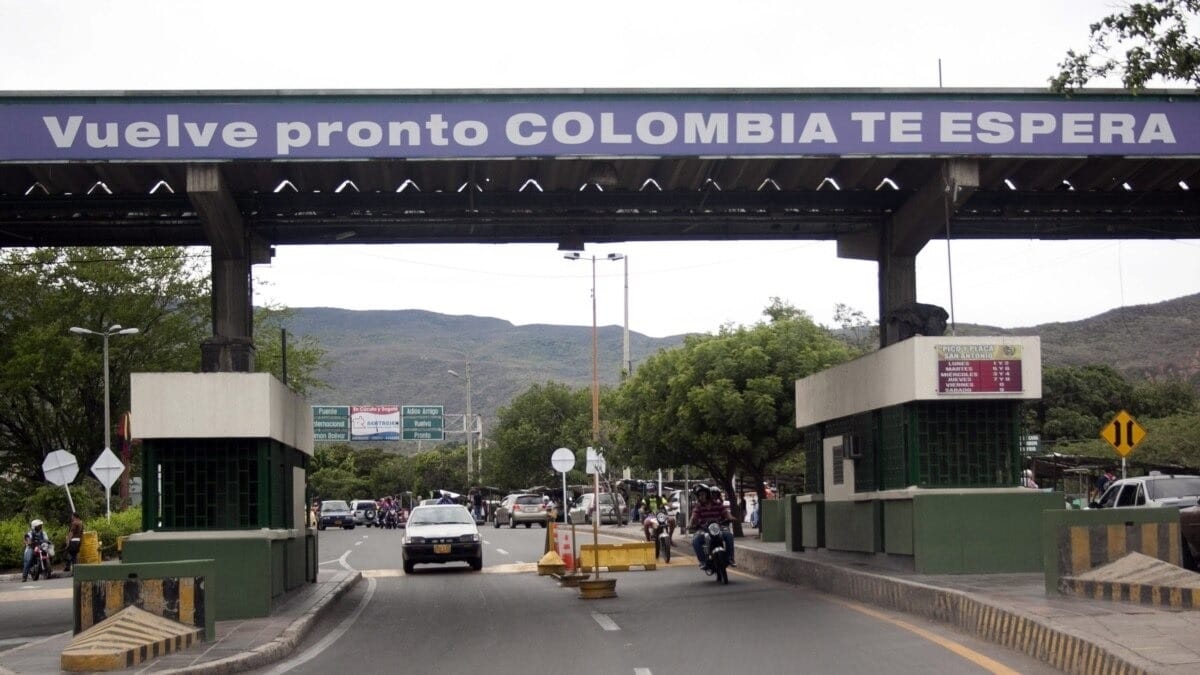
Colombia-Venezuela border crossing, seen from the Colombian side. File photo.

Orinoco Tribune – News and opinion pieces about Venezuela and beyond
From Venezuela and made by Venezuelan Chavistas

Colombia-Venezuela border crossing, seen from the Colombian side. File photo.
Colombian Minister of Transportation Guillermo Reyes González stated that some regulations have to be updated before reestablishing vehicular passage through the border crossings with Venezuela. The border crossings between the two countries has been closed for seven years.
In an interview Reyes mentioned some of the guidelines that must be followed before restoring vehicular passage at the Colombia-Venezuela border.
According to the Colombian minister, the priority is “to put the house in order,” and so, the process to resume vehicular movement through the border will be gradual.
RELATED CONTENT: Colombian Government Asks Airlines to Be Ready to Resume Flights to Venezuela
Some of the guidelines to be evaluated include updating the registry and a comprehensive review of everything that has to do with cargo transportation, quantity of cargo, driver’s licenses, and updating the registration of cargo vehicles and Compulsory Insurance (SOAT).
“One of the priorities when we normalize diplomatic relations on our part and on the part of the Venezuelan transport authority is to update the vehicle registry,” explained Reyes. “This is a fundamental issue, we need to establish rules for everything regarding SOAT [compulsory insurance] in case of accidents and the matter of gas emissions.”
Reyes added that his ministry is reviewing not only how to restore all the rights to the Venezuelan vehicles that circulated in Norte de Santander, but also analyzing the different variables on the responsibility that these cars must fulfill.
Better road infrastructure conditions
Freddy Bernal, the governor of Táchira state of Venezuela, said in an interview with Unión Radio this Tuesday, August 23, that his government is currently working on improving the road infrastructure conditions of the bridges that connect the two countries—Simón Bolívar, Francisco de Paula Santander, Tienditas, and La Unión. Bernal explained that the roads have deteriorated during the years of the rupture of bilateral relations and commercial exchange.
“After seven years of rupture of relations and without the national exchange, there is a deterioration of the roads,” he said. “Significant investments must be made in matters of electricity and water also.”
He also announced that this Wednesday afternoon, the General Staff of Industry will be installed in the city of Ureña. The General Staff will be made up of Fedecamaras, the Chambers of Commerce of the Border, a representative from the mayors, the Interior Ministry of the government of Táchira, and other authorities.
(RedRadioVE) by Ana Perdigón
Translation: Orinoco Tribune
OT/FV/SC/EF